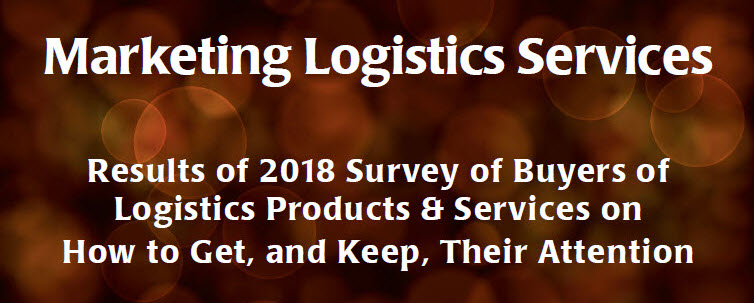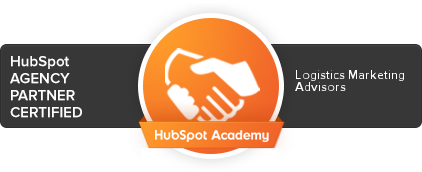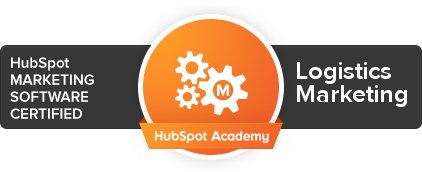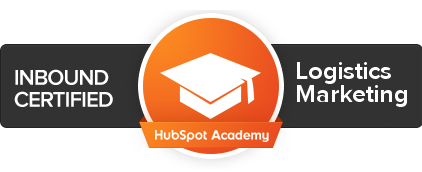Every couple of years, Logistics Marketing Advisors does a survey of professionals who make or influence purchasing decisions on logistics products or services. This year, we surveyed 100 buyers online and then followed up with direct interviews with 10 of these respondents to dig a little deeper.
The report on our research is available here.
Over the next several weeks, we’ll share buyers’ views on the best ways to get and keep their attention – along with our take on what this means for those of us involved in marketing logistics services. We’ll start with buyers’ answers to this question: “What frank advice do you have for logistics businesses that would like to build a relationship with you in the hope of gaining future business?”
The responses to this question have been (painfully) consistent in each of the surveys that we’ve done. We say “painfully” because the feedback suggests there is serious room for improvement. Here are the top three themes that emerged.
Be honest
Buyers don’t necessarily feel like they are being lied to. The feedback is more nuanced than that. For instance, what you don’t say could be just as important as what you do say.
“I like full disclosure out of the gate. If the relationship starts with a hidden charge, this will piss me off. But if I know I am dealing with an honest company that always gives me the straight facts, that’s a good foundation to build upon.”
Likewise, buyers appreciate a candid assessment of weaknesses, as well as strengths. After all, few providers are great at everything.
“Be honest about areas where you are not strong; it enhances your credibility.”
One takeaway for us is that what providers view as aggressive selling could be regarded by some buyers as dishonest selling.
“My BS meter is pretty finely tuned. I got a call lately from someone who said he could bring down rising freight rates. From that point, I tuned out since it wasn’t anything he could directly impact.”
OUR TAKE: No amount of make-up is going to permanently hide what you really look like. Embrace who you are and focus marketing and selling efforts on only those who align best with your specific value proposition. If you do this, overselling is unnecessary and out of place.
Understand my business
The thing that drives logistics buyers nuts, more than anything else, is logistics businesses who want to pitch a solution without any knowledge of the prospect’s business or industry.
Some buyers resent it at a personal level, regarding it as lazy selling and that doesn’t respect their time.
“Learn about my business, but not from me; I don’t have the time.”
“Do a little homework and know something about my business before you call. This approach works with me, as opposed to the blast email that says you’re the greatest thing since sliced bread.”
When marketing logistics services, we need to stop regarding companies as generic prospects on a target list for calls or emails. Behind these companies are people really struggling with tough business challenges – and looking for answers. By taking the time to dig a little deeper, suspects become true prospects at a much higher rate.
“I got a call from someone the other day who learned that we do a high volume of deliveries in a particular area and said he could help with capacity. That data point wasn’t hard to uncover. He’s now on my radar as a carrier for that city.”
When marketing logistics services, some companies mistake personalization for customization:
Dear Charlie,
Acme Corp. has been hit hard by rising tanker truck rates. Chemical industry shippers have been hit harder than most.
Aided by marketing automation tools, this kind of personalization helps. But more and more buyers recognize it as mass marketing.
“For most of the emails I get, I know I’m just part of someone’s mass email – even if my name is at the top.”
Marketing automation can personalize, but it can’t customize based on individual prospect research.
Listen more, sell less
Any logistics industry marketer or salesperson who’s been through Spin Selling, the Challenger Sale, Miller-Heiman or another popular sales methodology walks away with the words “LISTEN FIRST” indelibly stamped on their cerebral cortex.
It’s our experience that the vast majority of logistics providers (and their salespeople) truly DO understand the importance of listening, and that sales happen based on their ability to identify and solve a problem. Still, we can’t ignore the research, which suggests that at least some logistics salespeople need to bone up on basic selling skills.
“No flashy presentations or sales pitch is required. Just progressive ideas and a willingness to listen.”
OK, that’s the bad news. The good news (and the real headline from our research on marketing logistics services) is that logistics buyers rely more than ever on the ideas and contributions of providers.
“The pressure has never been greater to improve service at a lower cost. Logistics partners are vital to helping me respond to this pressure. They are an extension of our supply chain and can help when they are involved in the process and decisions.”
As corporate logistics budgets and staff get trimmed, the opportunity for 3PLs and other logistics businesses to add value increases. We just need to heed the advice of buyers:
- Listen first to identify the pain
- Share an innovative approach the solves for this pain point
- Earn trust by being honest and setting realistic expectations
- Religiously deliver on every promise
Hey, if it were simple everyone would be doing it.








